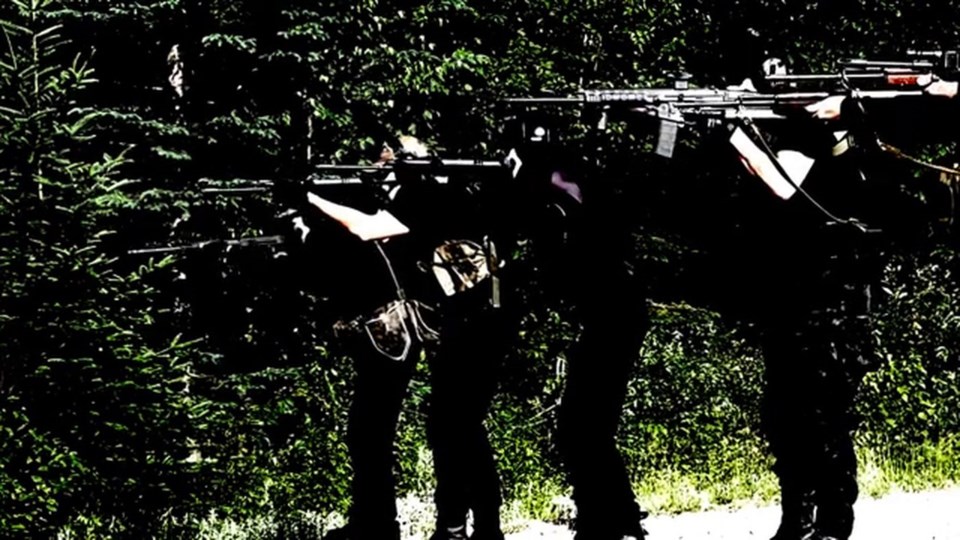OTTAWA — Defence lawyers for an Ottawa graphic designer facing terror charges over his alleged involvement with the neo-Nazi group Atomwaffen Division argued the evidence against their client is flimsy.
Closing arguments wrapped up Tuesday in the trial of Patrick Gordon Macdonald, 27, who pleaded not guilty to three terrorism and hate speech charges.
Crown prosecutors allege he helped make three recruitment videos for the listed terrorist entity, as well as a slew of other hate propaganda.
But his defence team argued the Crown can't prove beyond a reasonable doubt that he was involved in the production of the videos, and they suggested the case hinges on that.
"This is a house of cards that's built on a very shaky foundation," said defence lawyer Ariya Sheivari.
The series of propaganda videos in question espouse violent and antisemitic messages and symbols, and show a small, paramilitary-like force shooting rifles and burning flags and books, including the Pride flag and the Israeli flag.
Crown prosecutors have argued throughout the proceedings that camera equipment seized from Macdonald's home in 2022 can tie him to the creation of the videos through metadata analysis, along with other records and objects police obtained.
Police had seized multiple cameras and lenses, which prosecutors said contain identifiable traits, such as serial numbers and file naming conventions. One camera had an identifiable offset date of 391 days and 15 hours, meaning the date stamp on files would be more than a year off.
The defence argued the metadata evidence the Crown has assembled is circumstantial, and does not link Macdonald to creating the videos.
Sheivari told the court the identifying data for one of the cameras is linked to JPEG image files embedded in one of the three video files the RCMP had downloaded from the internet.
He said it's not clear what images are contained in those JPEGs and argued they alone are not proof that the videos were recorded with Macdonald's camera.
Sheivari called this a key "building block of the Crown's case" linking his client to the videos.
Defence lawyer Douglas Baum also challenged previous expert witness testimony that branded Atomwaffen a terrorist group, suggesting the research report compiled on the group for the court was sloppy and limited to secondary sources.
He noted the Atomwaffen Division was not designated a terrorist group by Public Safety Canada until 2021, after Macdonald was alleged to have participated in the group's activities. He suggested the Crown needs to independently establish that it is a terror group for the charges to stick.
Prosecutors also got some final words in on Tuesday, pointing to some neo-Nazi inspired imagery posted to the Tumblr account of "Dark Foreigner," an active social media poster they identified as Macdonald.
That included one image with text that reads, "Accept death, embrace infamy."
"The small drizzle becomes a bigger pond, is the danger here," said Crown prosecutor Catherine Legault, warning such graphics were made to recruit more members for the group and its far-right ideology.
None of the allegations have been proven in court. A scheduling hearing is set for early February.
This report by The Canadian Press was first published Dec. 3, 2024.
Kyle Duggan, The Canadian Press



